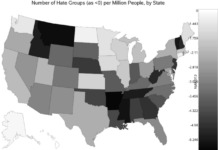
Increasingly, corrections departments across the country have begun outsourcing prison phone, email and money transfer services to private contractors in the name of cutting costs. However, it doesn’t look like they have learned anything from the numerous problems that have arisen from privatizing entire facilities. Today’s New York Times reports that a number of these companies are under fire for charging high rates and hidden fees.
Companies like JPay, which provides email and money transfer services, and Global Tel-Link (GTL), which provides phone, Internet and money transfer services, are expanding across the country, with the help of money from private equity firms. GTL, for instance, has contracts with 2,000 inmates serving 1.1 million inmates nationwide. Since they are largely exempt from regulations that protect ordinary consumers, inmates often find themselves facing sticker shock when making phone calls and sending emails. Families feel the pinch when transferring money to inmates’ commissary accounts, the equivalent of bank accounts on the outside. Even when they’re released, inmates can still get squeezed. Many corrections departments are loading the money prisoners have left over once they’re released onto prepaid debit cards, which sometimes come with obscene fees. For instance, one company charges $4.95 to maintain a card and $2.99 to make an ATM withdrawal.
Several inmates have filed lawsuits claiming that these rates are unjust. For instance, in Pennsylvania, GTL charges prisoners as much as $4.89 for a 15-minute in-state call on a debit plan, while collect calls cost loved ones as much as $5.15. These rates prompted Walter Chruby, who is serving a life sentence for murder, to file a lawsuit claiming that he has no choice but to pay “unjust and unreasonable” fees to keep in touch with his family.
Families don’t like the high fees either. For instance, Ely Peterson, a retired Marine, sends a small amount of money to his fiancee, who is currently serving a three-year sentence at the Tennessee Prison for Women, so she can get food. However, JPay’s rates are so high that sometimes he can barely afford to send $15 to her. Donna Starkey, whose son is serving a three-year sentence at the Lois M. DeBerry Special Needs Facility, says that even dropped calls can burn up money.
Some relief came earlier this year, when the FCC capped interstate rates at 25 cents a minute. Several companies have challenged this decision in court, maintaining that high rates are necessary for security reasons. However, this is belied by the fact that a 15-minute in-state call from prisons in New York state, which does not contract out phone service, only costs 75 cents.
Corrections departments are making a large amount of money from these deals in the form of commissions. In return for turning over services to these private firms, states and counties get a substantial chunk of the revenue. For instance, Baldwin County, Alabama farmed out its phone service to a Texas company that guaranteed it $55 per month from every inmate making a call. The wealthy suburban county east of Mobile takes 84 percent of the gross revenue from every call. Even some industry executives object to this setup, saying that some agencies demand commissions that are so high that they have no choice but to pass the cost on to inmates and loved ones.
For years, advocates of privatization have claimed that it saves money in the long run. But if you’re a prisoner or a loved one, you’re probably wondering where the savings are. This looks like yet another case where privatization is a good idea on paper that simply doesn’t work in practice.
Let us know what you think on the Liberal America Facebook page.
 Darrell Lucus is a radical-lefty Jesus-lover who has been blogging for change for a decade. Follow him on Twitter @DarrellLucus or connect with him on Facebook.
Darrell Lucus is a radical-lefty Jesus-lover who has been blogging for change for a decade. Follow him on Twitter @DarrellLucus or connect with him on Facebook.




